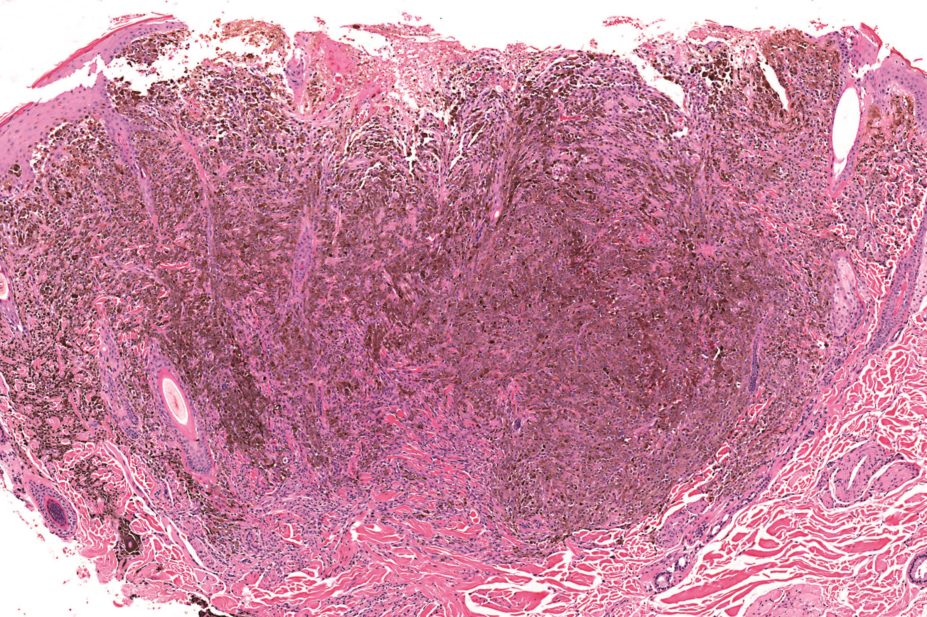
Shutterstock.com
Pembrolizumab (Keytruda) has been recommended for use as a melanoma treatment in England by the National Institute for Health and Care Excellence (NICE).
The drug can be used for adult patients with melanoma that has spread or cannot be completely removed by surgery despite treatment with ipilimumab and, for BRAF V600 mutation‑positive disease, treatment with a BRAF or MEK inhibitor.
Pembrolizumab, developed by Merck Sharp & Dohme, acts on the programmed cell death protein‑1 immune checkpoint receptor pathway, allowing reactivation of anti-tumour immunity. The humanised monoclonal antibody was previously available in the UK through the early access to medicines scheme.
The drug is a “great example” of progress being made with immune treatments for cancer, says Peter Johnson from Cancer Research UK. “We’re pleased that NICE has acted quickly to make it available on the NHS.”
The announcement from NICE on 7 October 2015 follows the approval of pembrolizumab by the US Food and Drug Administration (FDA) for the treatment of some patients with advanced non-small cell lung cancer.
The US medicines safety watchdog fast-tracked pembrolizumab’s approval and stipulates that it must be used in conjunction with a diagnostic test that detects expression of the PD-L1 protein in non-small cell lung tumours.
Prembrolizumab was designated a break-through therapy by the FDA for this indication because it could offer “substantial” improvements to patients compared with other therapies.
The drug was approved by the FDA for the treatment of patients with advanced melanoma in 2014.
You may also be interested in

Tackling the NHS drug budget: why we set up a regional collaboration for medicines value

Lack of joined-up working between pharmacy and general practice is ‘nonsensical’, says former BMA chair
